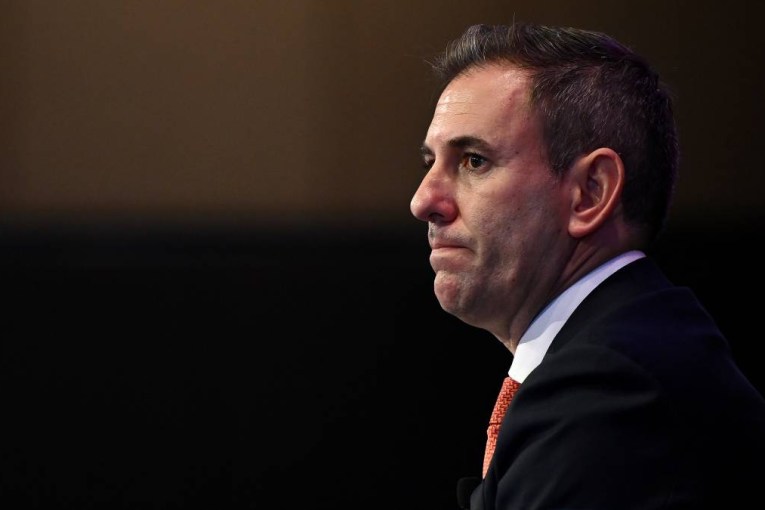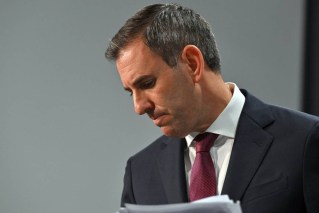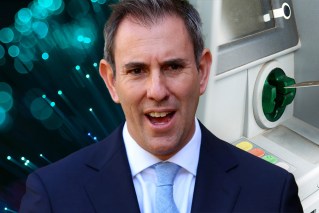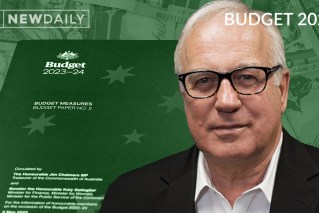‘Makes me want to puke’: Renowned economist rails against small business tax discounts


A prominent economist wants the federal government to provide more incentives for new businesses. Photo: TND
Tax concessions offered to Australia’s small businesses do not help the economy and are based on an “almost religious fervour” rather than evidence, according to independent economist Saul Eslake.
As Treasurer Josh Frydenberg puts the finishing touches to the budget, the former Treasury official and ANZ chief economist is calling for tax benefits to be scrapped for small businesses and given instead to new businesses.
The changes would create more jobs, support innovation and help guide Australia out of its first recession in nearly three decades, Mr Eslake said.
Since 2015, small businesses have paid lower company tax rates than their larger peers, although the discount size and turnover thresholds have varied from year to year.
But the concessions have achieved nothing in the five years since they were introduced, Mr Eslake told The New Daily.
“We’re one of the few countries that has [these discounts], but – and this is the important point – it has done virtually nothing to stimulate employment growth despite the fact people believe with almost religious fervour that small business is the engine room of the economy.
“Like a lot of other religious beliefs, there is absolutely no evidence for it.”
Despite the concessions, small businesses have been a net loser of jobs since 2015, Mr Eslake said.
In the 2018-19 financial year, small businesses employed 46,000 fewer people than they did in the previous financial year.
And data collected by the ABS shows smaller businesses are less likely to be ‘innovative’ – a measure of “new or significantly improved goods, services, processes or methods” implemented by businesses.
But this evidence is largely overlooked in favour of the “entrenched belief” that small businesses are the backbone of the nation’s economy.
“It’s as if running your own business makes you a better kind of person that deserves to pay less tax,” he said.
“That sort of thing makes me want to puke.”

Smaller businesses are less likely to innovate, based on the most recent ABS data.
Prioritise new over small
Tax concessions are still an effective way to encourage businesses to grow and expand, but Mr Eslake said benefits should be targeted at new businesses rather than small ones.
He gave five reasons why concessions for new businesses make sense.
- They are more likely than small businesses, which may be decades old, to operate in sectors with sustainable futures
- They are more likely to need staff, as small businesses typically already have enough people to operate
- They are more likely to innovate, as most founders are looking to introduce new products or services, or provide old ones in new ways
- There are fewer new businesses than small businesses, meaning governments can offer more generous concessions without eroding tax revenues
- New businesses have no way of staying ‘new’, meaning the concessions will only be temporary. Small businesses can choose to stay small to benefit from lower taxes, which has the perverse effect of impeding economic growth.
“To build the post-COVID economy, we’re going to need new businesses,” Mr Eslake said.
“Why not encourage the new businesses rather than preference small businesses which provide no net benefit?”
Tweet from @JoshFrydenberg
‘Fool’s errand’ to pick tax winners and losers
University of New South Wales economics professor Richard Holden agreed that tax benefits should not be offered on the basis of company size.
“That’s hopeless economics,” he told The New Daily.
“It makes no sense whatsoever.”
But he said the solution was not to prioritise new businesses, but rather cut the company tax rate to 25 per cent for all types of firms.
This would make it cheaper for businesses to operate, he said, and provide incentives for new investment.
“Trying to get into this game of ‘Does this type of business produce more for the country than this type?’ is a fool’s errand,” he said.
“We should just lower the cost of capital for everyone.”
Tweet from @BlueprintInsti1
Three steps for a stronger small business sector
Mr Eslake’s comments come as a report from newly-established think tank Blueprint Institute warns that many otherwise viable small businesses face insolvency because of ongoing coronavirus restrictions.
“A ‘laissez-faire’ attitude would likely result in a devastating loss of businesses and firm-specific human capital that would set back the Australian economy for years to come,” the report said.
Deloitte has warned that as many as 240,000 businesses could collapse when government support measures are wound back.
Blueprint Institute outlined three steps the federal government could take to support the sector through the crisis.
These included a new loan system based on the existing Higher Education Contribution Scheme (HECS), and ‘insolvency checkpoints’ to help weed out ‘zombie businesses’.
The think tank’s final recommendation was to fast-track skilled migration to ensure small businesses had a large pool of suitable labour from which to hire.
“Together, these measures will help support Australian small businesses during the economic recovery, help to put people back to work, and generate economic activity,” the report said.
“In turn, this would decrease unemployment and increase public revenue. This would be a win for both the Australian government and for small businesses.”









